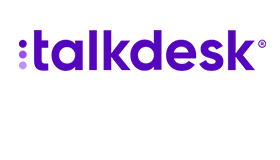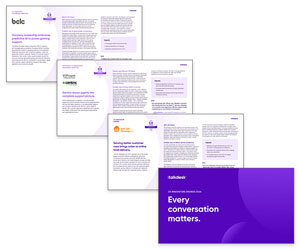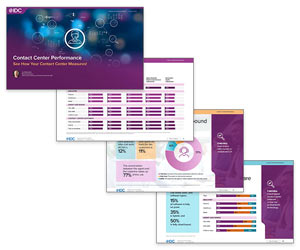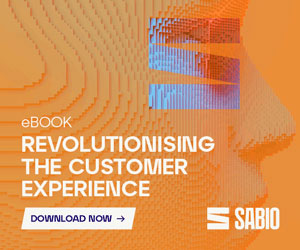Lídia Dias at Talkdesk explains that running an efficient call centre has become an essential process for many businesses striving for success. It’s what we often call “a good problem to have.”
There will come a point when maintaining customer satisfaction will require the ability to handle large call volumes. While this might be a new expense for your company, it also means that you’re becoming more successful.
Simply having a room full of contact centre agents, however, isn’t going to be enough. You’re going to need call centre software in order to properly manage these calls. Unfortunately, not every call centre solution is equal.
There are a variety of call centre systems available for businesses, but it really comes down to which option can meet your unique needs.
Some companies need contact centre software that merely directs callers to the appropriate department. Of course, other organizations may prefer systems that improve contact centre customer engagement or offer artificial intelligence (AI) and interactive voice response.
Whether you need minimal call centre software features or an entirely cloud-based system, modern contact centre solutions can get the job done.
The following guide will provide everything you need to know about this invaluable software. By the end of this article, you’ll understand how such a solution can benefit your customers, call centre agents, and your organization as a whole.
What is a Call Centre System Software?
Call centre system software is a platform that focuses on streamlining customer service solutions in a contact centre environment. There are various types of software that fall under this umbrella, and some platforms even offer several of these tools.
For instance, a basic type of call centre software may only offer interactive voice response (IVR)—a system that merely directs calls based on input provided by the caller.
However, a more complex solution may include IVR, computer telephony integration, automatic call distribution, and call centre monitoring.
These call centre systems are meant to fix many of the issues encountered in a traditional call centre environment. For instance, instead of having three agents working on mundane tasks (e.g., making payments, updating information), callers can use self-service options and free up agents to handle more complex issues.
The most basic software in contact centres offers benefits, but even more advantages come when you opt for a cloud-based call centre system.
Such benefits include greater scalability, reduced costs, increased efficiency, and superior security. Additionally, cloud contact centre software offers the opportunity for remote work—which has been shown to increase employee productivity.
Why Should I be Considering a Call Centre Solution?
The benefits of switching to a cloud contact centre are many, but it’s really the technology’s improvement over modern systems that stands out.
Tech has come a long way since LIFE magazine opened the first call centre in the 1950s, but far too many companies use the same dated technology.
Such systems typically don’t allow for the integration of customer relationship management (CRM) software, and this means you can’t even handle the basic functions of modern customer service solutions.
Cloud-based call centre systems also allow your support teams to focus on service without worrying about hardware issues. While even the cloud requires some form of hardware in your contact centre (e.g., modems, routers), there are far fewer components that can experience issues.
This means less downtime than traditional legacy systems, and if problems do occur, it’s much easier for tech support teams to identify the underlying cause and get you back online.
Even these impressive advantages over old-school call centre solutions don’t come close to covering the best features available when you choose the right contact centre software.
5 Best Features to Look For When Choosing the Right Call Centre Software
Choosing the top call centre software doesn’t have to be a burden. You certainly want the best option for your particular demands, but as long as your contact centre solution meets a few basic requirements, it should be able to meet your needs and improve operations.
These are the top call centre software features you should seek out when choosing a solution:
- Integrations
- Implementations
- Call routing and IVR
- Analytics and metrics
- Scalability
1. Integrations
Even call centre systems that handle every potential aspect of customer support calls can’t be standalone solutions. Your business utilizes a variety of different software platforms to improve call centre and overall productivity, and it’s essential that all these platforms can integrate seamlessly.
Your help desk software, CRM systems, workforce management tools, marketing tools, and even social media platforms would work together in an ideal world. When choosing the best call centre software, integrations should be a top concern.
2. Implementation
Ease of implementation is another essential aspect of any great call centre software. With the advanced solutions available, it shouldn’t take more than 1-2 hours to fully implement even the most feature-heavy systems. Ease of implementation is essential since your contact centre capabilities may be reduced during this time.
3. Call Routing and IVR
Some executives believe they don’t need call centre solutions merely because they have live agents that answer their calls. Unfortunately, this also creates the possibility of putting clients on hold or even missing their calls.
Call routing and interactive voice response (IVR) systems removes this potential issue. The simple fact is that not every caller needs help from a live agent, and even when they do, getting them to the right department doesn’t mean an employee has to transfer them.
The right call centre software can take an inbound call and direct it based on caller input. This could be something as simple as having customers “Press 1 for you’re a current patient, press 2 if you’re a provider”.
With this technology, your business phone system can handle many simple solutions for your customers—and with smart call routing, you won’t waste time and resources trying to get callers to the right department.
4. Analytics and Metrics
No call centre software solution is complete without the ability to measure analytics and metrics. Call centre metrics will show you just how well your agents and new system are functioning, and it can identify areas where improvement may be necessary.
For instance, if one of your agents has a higher average call time on inbound calls than other employees, you’ll know that it’s time to use the live call monitoring function to see exactly what’s going on.
The ability to track both individual and team metrics is equally important, and this is true for both inbound and outbound call centre .
That’s because data is everything in the modern business world. It can help you handle tasks ranging from improving workforce management to making inbound and outbound calls more efficient.
If you’re using business phone systems that don’t track metrics and provide analytics, you’re doing your entire organization a disservice.
5. Scalability
Many businesses choose their call centre software based entirely on price. This should certainly be a consideration since selecting the right cloud contact centre pricing model will play a major role in your return on investment.
However, this doesn’t mean you should simply opt for the cheapest call centre management software you can find. That’s because a system with a single low price typically won’t have scalability—and this is an essential aspect of a successful call centre.
Scalability refers to the ability of a call centre software solution to shrink or grow based on your needs. For instance, imagine a company that deals in beach supplies.
Their call volume will obviously be highest during the summer, so why should they pay for summer infrastructure needs during colder months?
Additionally, contact centre software options should be able to grow with your company. As you become more successful, you may need to handle higher call volume and even increase focus on outbound campaign management. Scalability offers such possibilities.
Call Centre Systems FAQs.
What is a Call Centre Phone System?
Unlike traditional inbound call centres, a call centre phone system is meant to handle a higher volume of calls. This contact centre solution achieves this by utilizing a variety of different technologies. For instance, incoming calls may first go through an IIVR system to be properly directed.
Help desk software, desktop integration, and automatic call distribution (ACD) are other tools available with contact centre software that reduce the burden on agents and increase inbound call capabilities.
What are the Advantages of Using a Cloud-Based Call Centre System?
There are a variety of advantages to using a cloud-based solution for call centre systems. To start, they’re incredibly easy to set up and don’t require large expenditures on hardware.
They also offer reduced costs and greater scalability. Additionally, these systems allow easier remote work, so call centre agents can be available for clients even when space constraints make physical attendance difficult.
This leads to a better customer experience, and when combined with heightened security, there’s simply no excuse to not use a cloud-based solution.
How Do You Start Using a Call Centre Phone System?
The initial process of utilizing your new phone system will depend heavily on the call centre software you’re using. Separate vendors may offer very different solutions, and even when you consider only one vendor, their variety of products typically have varying setups and other processes.
Are There Limitations to Cloud-Based Call Centre Systems?
Even the best call centre software may have certain limitations. Fortunately, many of these can be managed—but it’s still important to recognize their possible existence.
First, you may need to worry about legal issues. Local regulations could affect how you operate, but utilizing an established cloud contact centre provider can minimize such issues.
It’s also possible that communication between employees could suffer if they’re working remotely. This is why utilizing call centre systems with effective communication channels is so important.
This blog post has been re-published by kind permission of Talkdesk – View the Original Article
For more information about Talkdesk - visit the Talkdesk Website
Call Centre Helper is not responsible for the content of these guest blog posts. The opinions expressed in this article are those of the author, and do not necessarily reflect those of Call Centre Helper.
Author: Talkdesk
Published On: 4th Jul 2022
Read more about - Guest Blogs, Talkdesk






 Talkdesk is a global customer experience leader for customer-obsessed companies. Our contact center solution provides a better way for businesses and customers to engage with one another.
Talkdesk is a global customer experience leader for customer-obsessed companies. Our contact center solution provides a better way for businesses and customers to engage with one another. 
































